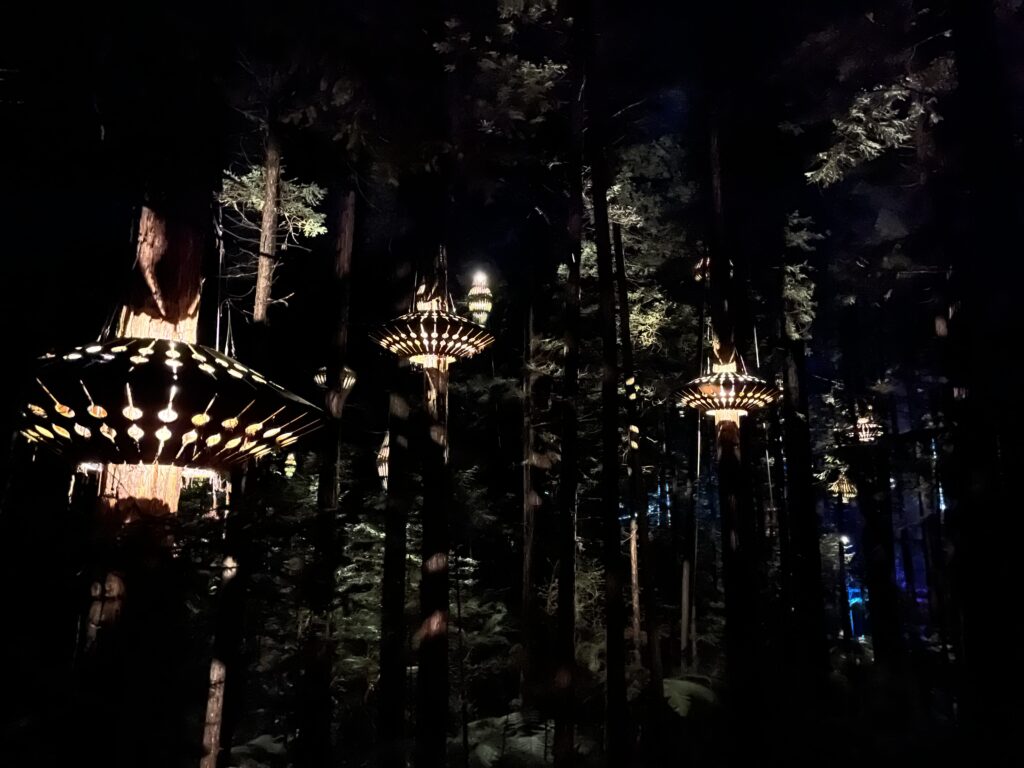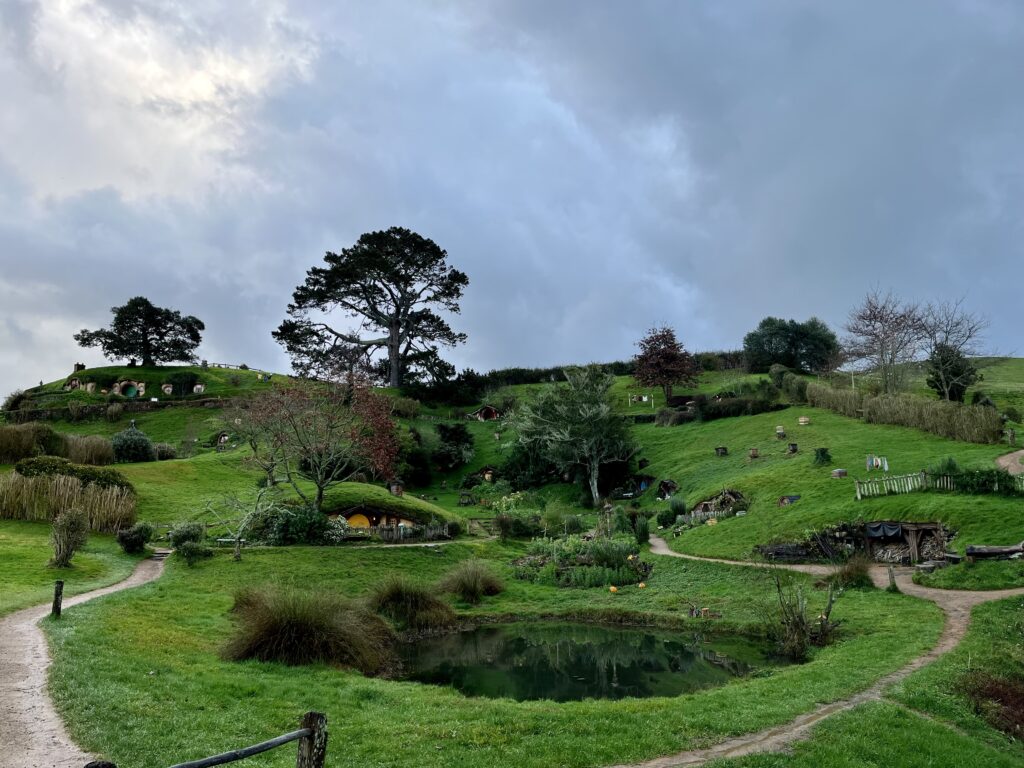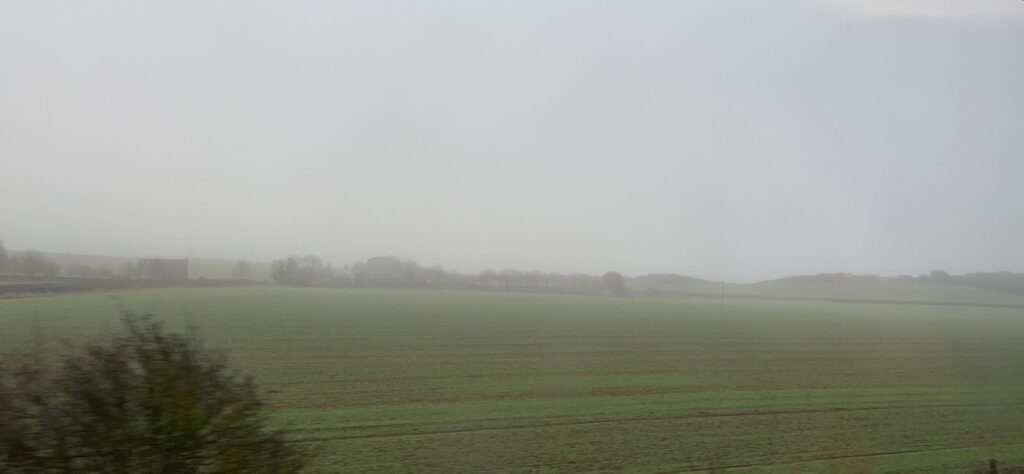In which our heroes get COVID, recover, fly halfway around the world, visit Middle Earth, walk through Mirkwood, and spelunk into Moria. Sorta.
It seems both yesterday and an age ago that good friends from Seattle passed through London while moving to New Zealand. They moved before the pandemic got rolling, and their encouragement that we come visit quickly became academic, as countries restricted travel and New Zealand closed its borders.
In late March, when New Zealand set out a timeline for tourism without quarantine, we started planning a visit; aiming for the New Zealand winter school break. We picked dates, bought tickets, and crossed our fingers that the pandemic didn’t throw another spanner in the works.
We started by sorting out cat care for the two weeks we’d be gone, and learned our very-local cat sitter – who we and the cats really liked – was moving to the other side of London and hence out of consideration. Dawnise hit on the idea of asking my brother if he wanted to come stay at our place, take care of the cats, and explore London and the UK while we were away. It slotted reasonably well into his work schedule, he was able to find flights that worked with our dates, and so we had a plan.
And then I got COVID. I came back from a trip to Seattle two-and-a-bit weeks before our scheduled departure and what I thought (hoped?) were allergies developed into feeling generally crappy and a fever. I initially tested negative, but symptoms persisted and I rolled to disbelieve – sure enough the next test was positive. Dawnise tested positive a couple days after I did and the race was on.
New Zealand had dropped their pre-flight test requirement but still required day zero and day five rapid antigen (lateral flow) tests – with a follow up PCR test and isolation on a positive result. Regardless of the test requirement, flying while positive seemed at best irresponsible, so our tickets were in a game of chicken with the virus.
I started feeling better after a week or so, and tested negative a week before departure. Dawnise cut it a bit closer, but was negative a few days before our flights – though her energy levels were still ramping back toward normal.
My brother had arranged to arrive before we left, planning to spend a week traveling before settling in at our place. He landed in London while we were both still positive, so coming here seemed a questionable choice. Wary of the flight disruptions in and out of the UK, he elected to take the train up to Edinburgh for a few days, rather than risk complications getting to or back from the continent. We got occasional dispatches from him, and he seemed to be enjoying the city as much as I thought and hoped he would.
And then he got COVID. His last morning in Edinburgh what he thought (hoped?) were allergies had expanded to include a sore throat – and the COVID test quickly returned a positive result. He made his way to our place in London – masked-up and as distanced as possible – and basically quarantined in the guest room, only emerging masked and doing everything he could to not share whatever strain he had with us.
On our day of departure we made our way to Heathrow and boarded the first of two flights, heading to Los Angeles to connect to Auckland. Our layover was taken up by a delayed departure from LHR and by sitting on the tarmac in LAX waiting for a parking stand, so we ended up running through the airport – needing to clear customs, claim our bags, recheck our bags, and re-do security (don’t get me started). Fortunately for us there were a dozen of us making the connection, and they held the Auckland flight for us.
After a long but uneventful flight we arrived in Auckland bleary eyed two days after we left. We cleared customs and biosecurity (where they asked a surprising number of questions about my hiking shoes), and picked up our day zero and five lateral flow test kits on our way out of the airport.
Our friends picked us up, and after a quick greeting drove us to their place, just north of the city.
We spent a couple days hanging out, walking on the beach, getting over jet lag and reconnecting before we hired a car (British english for “renting” a car) and formed up a convoy destined to an Air B&B in Rotarua.
We spent a few days in and around Rotarua being tourists. We saw the volcanic mud and geothermal pools and geysers that made the town a tourist destination. Saw kiwis (the bird) and learned a bit about Māori carving and weaving traditions at Te Puia Māori cultural center and art school. Walked around the “buried village,” and read about the 1886 Mt Tarawera eruption, and the now-buried pink and white terraces, walked high in the canopy of a redwood forest, and went back to do it again at night, which was pretty magical.

And of course, if you’re us you don’t go all the way to New Zealand and not tour Hobbiton. The occasional rain burst didn’t stop us having a great time. The setting was literally fantastic and the attention to detail was mind boggling. The place felt real and lived in – and some part of me wouldn’t have been surprised if a door had opened and a Hobbit had poked its head out. We had booked the “Evening Banquet Tour” so our tour group was alone in the set – no group ahead or behind us. The late day lighting added to the magic of the place, and I’m happy to say I was plesantly surprised by the banquet bit. After dinner and several dessert courses (‘urp) we picked up appropriately themed lanterns and headed back into the set, taking a moment as a group to turn off the lights and gaze up at the stars through a cinematically timed break in the evening clouds.

On the morning we left the Air B&B we took separate paths. Dawnise and I headed off to visit the Waitomo limestone and glow worm caves taking the long way back to Auckland.

The following day we dropped off the hire car back in the city and wandered around Auckland a bit. We found very respectable Mexican food, good coffee and possibly the most pretentious ice cream ever before catching the bus back to their place.
And then Dawnise got… a cold. Nothing horrible, just some sinus congestion and fatigue, but most unwelcome.
We spent the last couple days hanging out with our friends – playing games, chatting, sharing meals. The day we left we played games basically right up to when we needed to leave for the airport.
Our flight from Auckland to San Francisco was slightly delayed, but a longer stop in SFO meant we just spent a bit more time waiting in AKL and a bit less time waiting in SFO. We departed for London on schedule – a couple hours before we’d left Auckland (timezones are weird).
The flights were long but basically uneventful, aside from the turbulence that seems nearly guaranteed to happen just as they’re serving drinks and dinner.
Dawnise even managed to get some sleep in transit.
When we got back to the flat we had missed my brother by an hour or so – he waited to know we were on the final flight home before heading out on an overnight trip to York – and the cats seemed to mostly not notice or care we were back.
We unpacked, showered off 30 hours of travel grime and went to get some groceries. With some help from a re-run of Alan Davies: As Yet Untitled we even managed to stay up to a mostly reasonable hour before surrendering to sleep.
It was our first “real” trip in three years – and all things considered went pretty well.
We spent Monday recovering from jet lag, and Tuesday I went back to work – but that’s a story for another time.
Oh, and with a little nudging my brother pushed out his flight home to spend a bit more time “over here,” and make up for the time he spent isolating and recovering from COVID. He’s off to Barcelona in a couple days. Fingers crossed he makes it back for his flight home.
Chatting about the trip through the haze of jet lag Dawnise poignantly observed that our time there felt completely normal.
It was probably the first time she’d said that in three years, and was a sharp and present reminder to us both of how much we miss having these people close, and in our lives.

